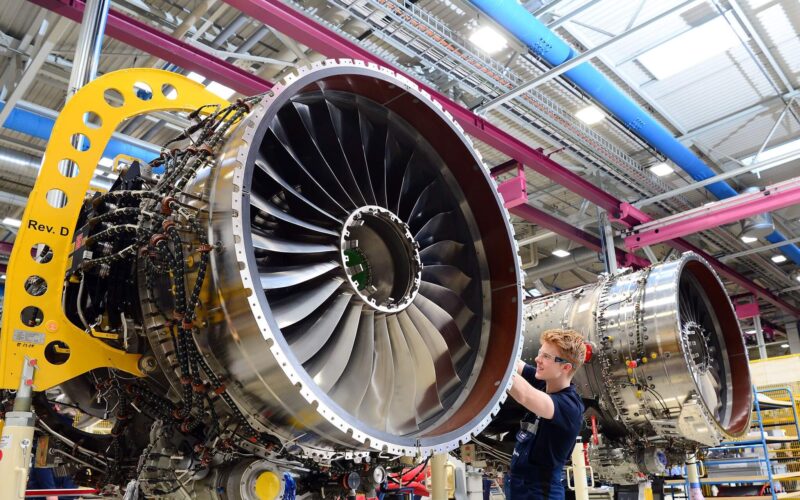British engine manufacturer Rolls-Royce has received certification from the European Union Aviation Safety Agency (EASA) for its new Pearl 700 engine.
The new engine will power Gulfstream’s latest G800 and G700 executive jets. Equipped with Pearl 700 engines, the G700 and the G800 will be able to fly ultra-long range nearly as fast as the speed of sound.
During the test campaign, the Pearl 700 engine proved its ability to withstand bird strikes, ice, hail, and water ingestion. The engine can also operate on both conventional jet fuel and 100% Sustainable Aviation Fuel (SAF).
“The G700 and G800 can deliver their impressive performance capabilities thanks to the Rolls-Royce Pearl 700 engines and the advanced Gulfstream wing and winglet on the two aircraft,” said Mark Burns, President, Gulfstream.
Gulfstream G700 and G800 specifications
Gulfstream introduced the G700 jet in 2019. Designed to accommodate 19 passengers, the G700 can reach a maximum range of 7,500 nautical miles (12,950 kilometers) and a top speed of Mach 0.925 (1133 kilometers per hour).
Launch customer Qatar Executive has 10 G700s on order and is expected to take the first delivery in 2022.
The Gulfstream G800 jet was launched in 2021. The new aircraft is currently the world’s longest-range private jet with the capability to fly up to 8,000 nautical miles (14,816 kilometers) at Mach 0.85 (1041 kilometers per hour) and 7,000 nautical miles (12,964 kilometers) at the top speed of Mach 0.925 (1133 kilometers per hour).
Powered by Rolls-Royce Pearl 700 engines, the G800 is designed to accommodate up to 19 passengers and offers up to four living areas, or three living areas with a crew compartment. The G800 jet completed its first flight in June 2022.
The Gulfstream G800 is a direct competitor of the Bombardier Global 8000, which is set to enter commercial service in 2025. When developed, Bombardier’s Global 8000 business jet will be the world’s fastest jet with a capability to fly up to 8,000 nautical miles (14,816 kilometers) and reach the maximum speed of Mach 0.94 (1151 kilometers per hour).

